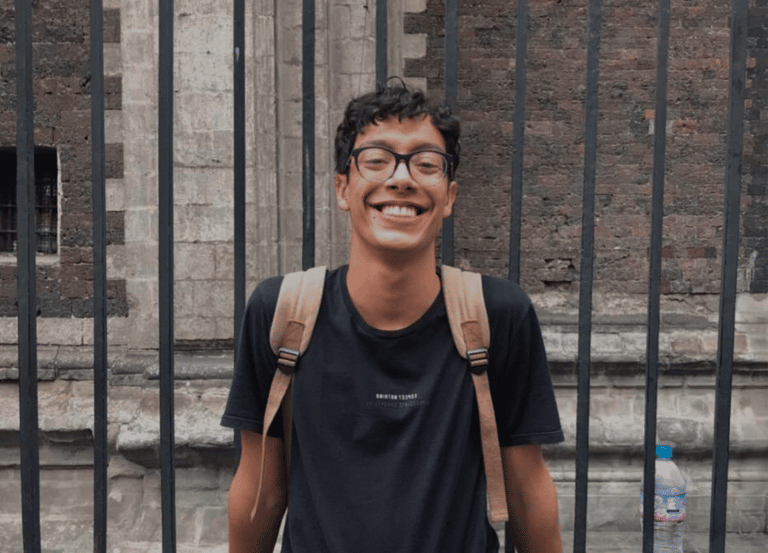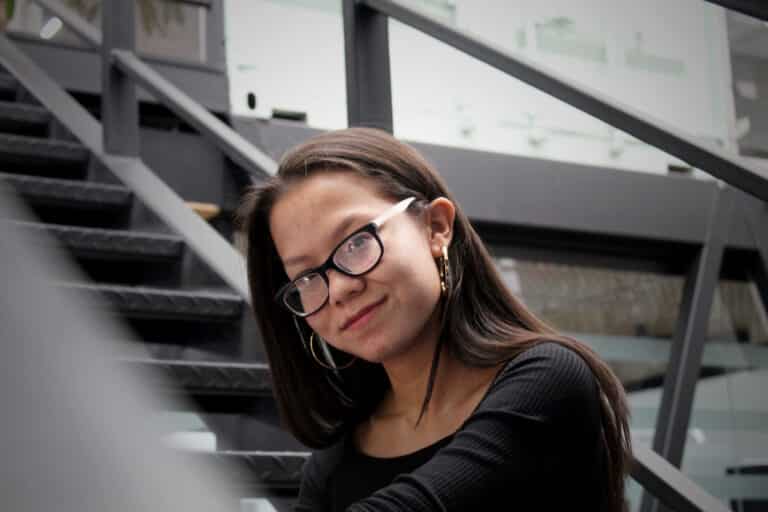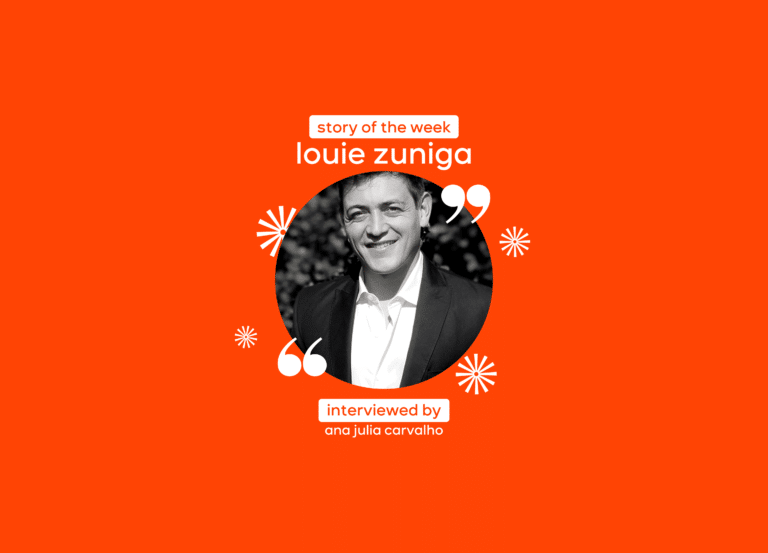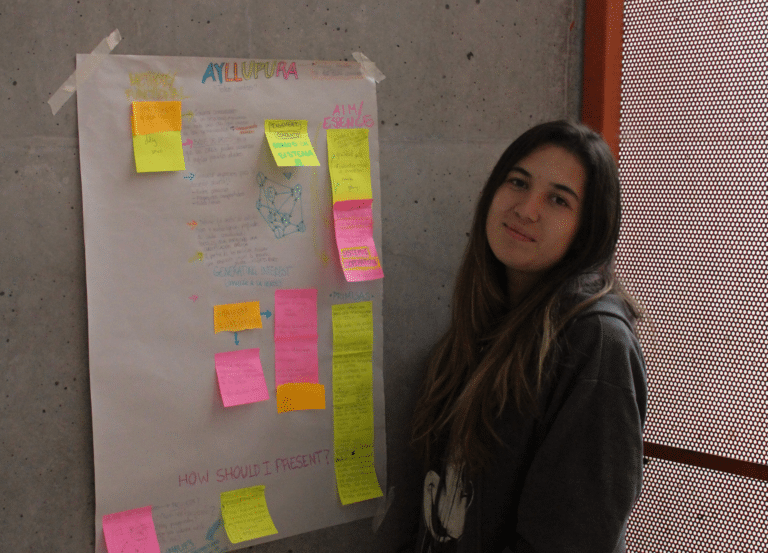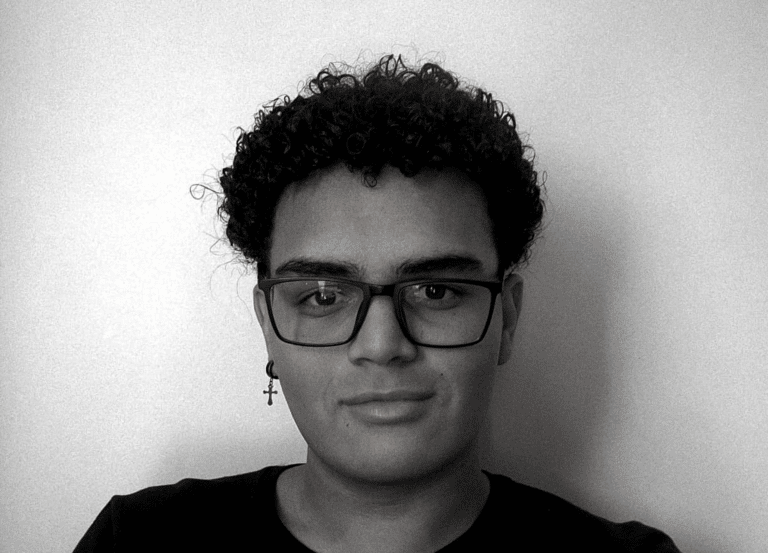Entrevista con Guilherme David, cuyo objetivo es estudiar informática y utilizar la tecnología como herramienta para ampliar la educación holística en Brasil.
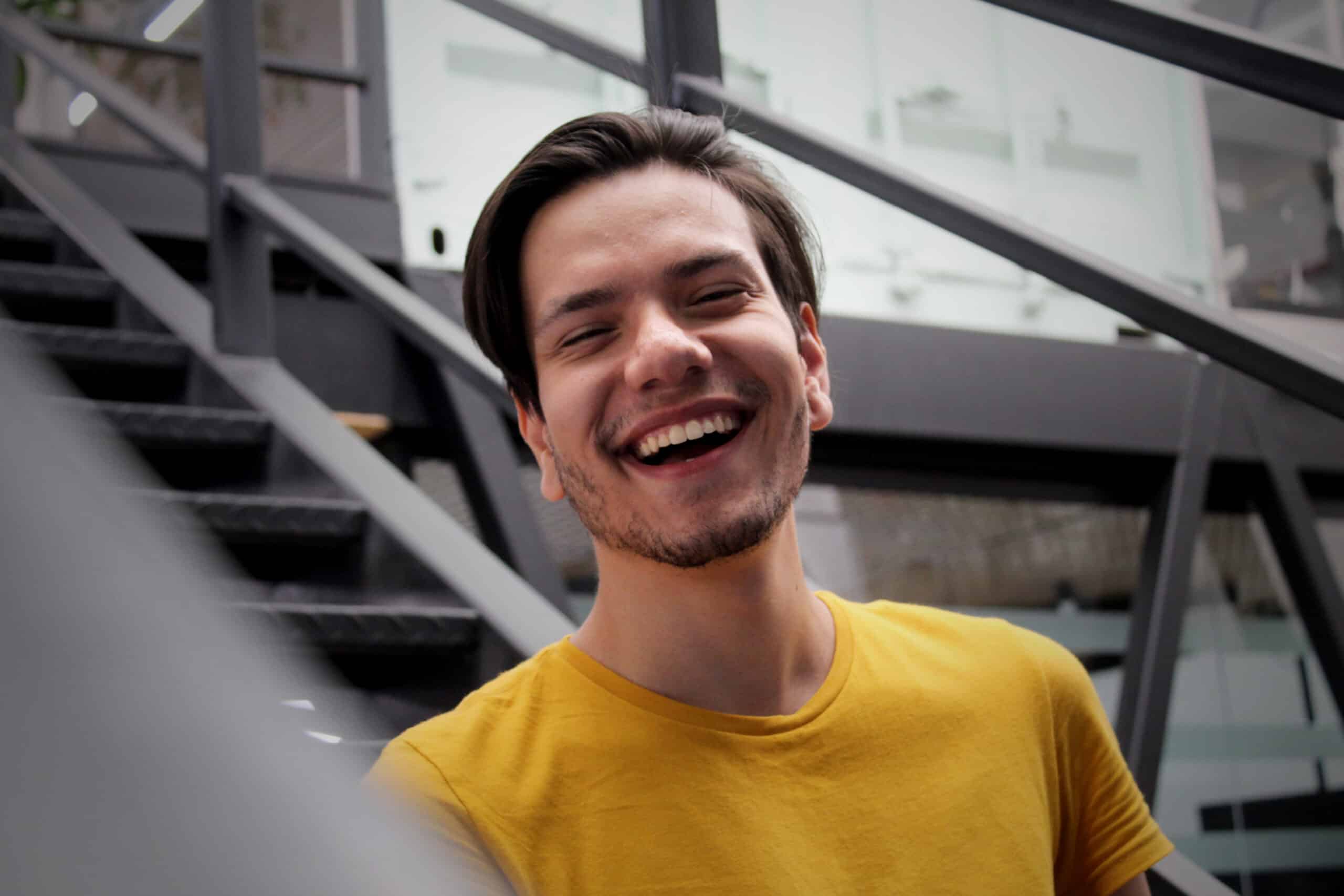
"LALA te da claridad. Te hace darte cuenta profundamente de quién eres. A través de LALA, pude conectar muchos puntos de mi propia historia que, hasta entonces, no había conectado, pero que inconscientemente estaban ahí todo el tiempo."
El interés de Guilherme por la educación holística surgió a raíz de un suceso impactante cuando tenía diecisiete años. Gracias a sus excelentes resultados en las olimpiadas de física, acababan de ofrecerle una beca completa en un prestigioso colegio privado, con la oportunidad única de convertirse en medallista internacional de física. Cuando volvía en autobús público de una reunión en ese colegio, el autobús fue secuestrado. Todos los pasajeros fueron asaltados a punta de pistola. Al instante, Guilherme sintió terror y algo más. Después de oír a una mujer de mediana edad susurrando oraciones a su lado, instintivamente puso su mano sobre la de ella. En ese momento, se dio cuenta de que compartían un sentimiento: la necesidad de seguir vivos. Esta "condición compartida", como él la llama, era tan fuerte como para sacudirse cualquier diferencia de edad, procedencia y religión y promover una conexión profunda y sincera.
Al reconocer otras condiciones compartidas en sus comunidades, Guilherme decidió liderar el cambio desde dentro. Rechazó la oferta de becas de la escuela privada y clavó las uñas en su instituto público: el Instituto Federal de São Paulo (IFSP). En lugar de convertirse en medallista internacional de física, se hizo profesor. Al año siguiente, fundó "Preparatório Avançado de Física ", un curso extraescolar de física que ayudó a decenas de estudiantes a ganar medallas sin precedentes en las olimpiadas nacionales y a acceder a las universidades más prestigiosas de Brasil. Con un enfoque basado en los puntos fuertes, Guilherme también puso en marcha OrgulhoFederal, una plataforma para celebrar el talento y los logros de los estudiantes de la red de escuelas técnicas públicas de todo Brasil , los Institutos Federais.
Cuando Guilherme participó en la final de las olimpiadas científicas, se emociona al recordar cómo llegaba al centro de pruebas con su coordinador en un coche pequeño mientras enormes autobuses con los logotipos de colegios privados de élite dejaban a montones de sus alumnos. "Habíamos llegado a un lugar que nunca estuvo destinado a nosotros".
Y por "ese lugar", Guilherme no se refiere sólo a las competiciones científicas. A la pregunta "¿qué es lo que más le apasiona en este momento?", responde: "Quizá... Brasil. Pero no lo digo en un sentido tópico. Me apasiona encontrar cuáles son las 'condiciones compartidas subyacentes' de mi nación". Explica que "he tenido la oportunidad de ver las dos caras de la moneda", refiriéndose no sólo a sus encuentros con los sistemas educativos público y privado, sino también con su comunidad. Procedente de la escuela pública, recuerda ejemplos de antiguos compañeros asesinados por la policía o detenidos por su implicación con organizaciones criminales.
Poder conectar con esta condición que existe tanto en este lado como en ese otro lado de este país llamado Brasil... y poder arrojar luz sobre esta condición a través de la educación... eso es lo que me apasiona.
Guilherme David
El sueño de Guilherme es hacer por Brasil lo que ha estado haciendo con su instituto. En otras palabras, utilizar esta idea de "condición compartida" para ascender juntos. Superar un sistema educativo mediocre que no es más que una "cadena de montaje de un modelo económico obsoleto" para convertirse en una comunidad de ciudadanos comprometidos, críticos, creativos y pacíficos. Guilherme llama a esto un modelo "holístico" de educación cuyos elementos clave son los espacios para comprometerse con los intereses personales y las herramientas adecuadas para perseguir las propias pasiones.
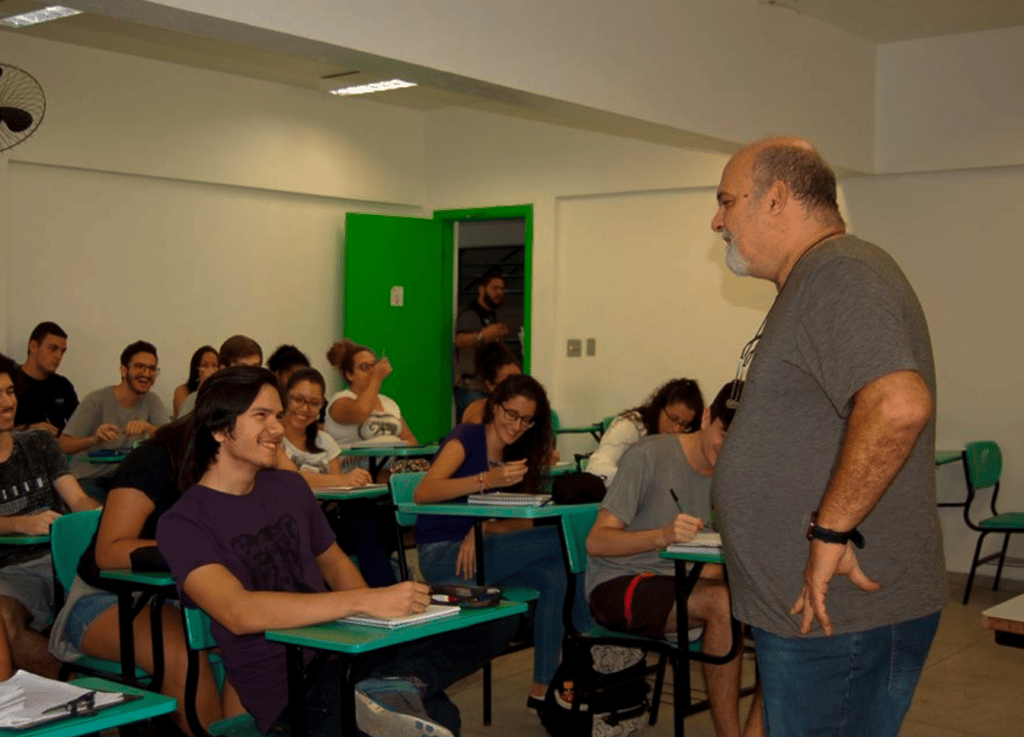
Eso es lo que le ha llevado adonde está, y eso es lo que está creando para los demás. Cuando Guilherme tenía 13 años, su profesor de Educación Física, Falcão, cambió su vida. "El fútbol era la única opción en las clases de educación física y, a pesar de mis muchos esfuerzos, se me daba fatal. Un día, marqué mi propio gol, como portero. A partir de entonces, me dejaban en el banquillo en todas las clases". Sin embargo, esta ineptitud pronto se convirtió en una bendición. Para aprovechar su ociosidad, decidió traerse libros viejos de casa para leer. Falcão empezó entonces a hablar con él. "Hablábamos de todo, desde el origen del universo hasta la filosofía de Nietzsche. Era la primera vez que encontraba un espacio para hablar con alguien que realmente entendía mis intereses". Gracias a este acercamiento, Falcão le donó más tarde un conjunto de viejos libros de texto de química del instituto que estaban tirando. Guilherme pasó entonces a estudiarla por completo en menos de un año. "No soy muy diferente de mis amigos... No nací inteligente ni en una familia intelectual. Simplemente tuve el privilegio de contar con el espacio y las herramientas para perseguir mi pasión".
Hoy en día, Guilherme proporciona las herramientas y los espacios para otros a través de muchas iniciativas. Actualmente, trabaja como Jefe de Producto en exemplio, un podcast que co-creó con LALums Brenda Major y Guilherme Coube de su cohorte BLB4. Además, Guilherme ha escrito O Guia Definitivo Para Entender Física - un libro electrónico que publicó como culminación de dos años enseñando física. Actualmente se está tomando un año sabático para Postular a universidades en el extranjero con el apoyo de una beca en Crimson Education, una oportunidad que agradece a Marcelo, el Director Regional de LALA, por contárselo. Su objetivo a largo plazo es estudiar informática y utilizar la tecnología como herramienta para ampliar la educación holística en Brasil. En febrero próximo, a los 20 años, Guilherme asistirá a la Academia piloto de LALA en Medellín, Colombia.
"Hay gente que me dice: 'tienes 20 años, no has ido a la universidad... ¿no llegas un poco tarde?'. Y yo les digo: 'No llego 2 ó 3 años tarde. Llego 200 años antes porque estoy aprovechando oportunidades que nunca fueron para mí". Según la Organización de Cooperación y Desarrollo Económicos (OCDE), una persona brasileña nacida en la pobreza tarda aproximadamente 9 generaciones en ascender a la clase media. "Esta es la dura realidad de mi país que a menudo pasamos por alto. Las líneas de salida para muchos de nosotros son radicalmente injustas. Como muchas oportunidades nunca estuvieron pensadas para gente como yo, he llegado a la conclusión de que mis victorias nunca me pertenecieron sólo a mí. Pertenecen también a mi familia, al Instituto Federal y a Brasil entero".
